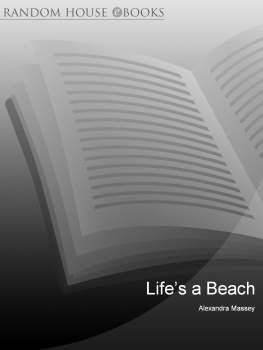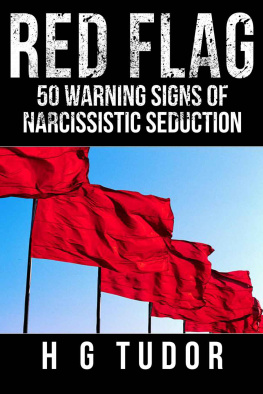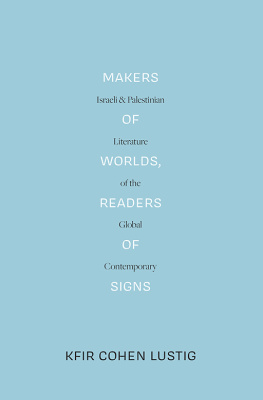All rights reserved. No part of this book may be reproduced in any form or by any electronic or mechanical means, including information storage and retrieval systems, without permission in writing from the publisher, except by a reviewer, who may quote brief passages in a review. Scanning, uploading, and electronic distribution of this book or the facilitation of such without the permission of the publisher is prohibited. Please purchase only authorized electronic editions, and do not participate in or encourage electronic piracy of copyrighted materials. Your support of the authors rights is appreciated. Any member of educational institutions wishing to photocopy part or all of the work for classroom use, or anthology, should send inquiries to Grove Atlantic, 154 West 14th Street, New York, NY 10011 or .
Its been about a year since I left Jerusalem and came to Urbana-Champaign, Illinois, with my wife and three children. We celebrated the anniversary by preparing homemade hummus and frying falafel. By now we know where to buy the right products for making food that approximates the taste of home. My younger son, who arrived here at the age of three without knowing a word of English, asked for another portion of falafel. I sliced a pita in half, stuffed it with a few falafel balls, added a slice of tomato and cucumber, and dampened the contents with some tahini sauce. Wow, Daddy, he said after biting into the pita avidly, and added, in English, with a midwestern accent, This taco is really good. And I knew I had an idea for my weekly column.
When I started to write a weekly column in the Israeli newspaper Haaretz, more than ten years ago, I was still living in Beit Safafa, a Palestinian neighborhood of Jerusalem, with my wife and my firstborn daughter. Since then, I have become the father of two more children; I moved from the eastern to the western part of the city; governments have come and gone; wars have broken out, died down, and erupted anew; and I churned out a column every week.
Writing a weekly column can be a real nightmare. Some days I found myself wandering the streets of Jerusalem and mulling aloud, What will I write about this week? If I was apprehensive that I had nothing to write about, or felt that the last column Id written was not very good, I sank into depression. When I knew Id written a good piece I was delighted, even if it was about missiles being fired into the country.
Writing the column became a way of life for me. As soon as I sent one column to my editor at the newspaper, I started to think about the next one. I didnt look for a thought or an idea; I looked for a feeling. The method I adopted was to write about what had moved me most that week. I honed my senses and pursued emotionsfear, pain, hope, desire, anger, happiness. My promise to myself was that I would convey those feelings to the reader by means of personal stories. I tried to be honest and to tell the truth as I perceived it, even though what I wrote was sometimes complete fiction.
During the past decade Ive written about almost everyone I know. I have very few friends left: people started to keep their distance from me or went silent in my company, for fear that what they said would end up in the paper. I made my wifes life a misery, and the lives of others in my family, by exploiting them shamelessly if I thought it would help me write a better column.
Mostly, though, I think I tried to survive the reality around me through words, to create order out of the swirling chaos and find an inner logic in what I saw and experienced. The column gave me space to apologize, cry out, be afraid, implore, hate, and lovebut above all to look for hope and make my life a little more bearable. Thats why I went on writing it: in the hope that in the end all would be well and that all one has to do is write ones life as a storyand find a happy ending.
Sayed Kashua
June 2015
April 7, 2006
To: Editor, Haaretz magazine
Re: Sayed Kashuas column
Dear Sir,
Well now. This is of course not the first time Ive had occasion to send a letter to the editor of a newspaper on which my husband, who goes by the name Sayed Kashua, is employed. And like the letters that came before, this one, too, is a formal warning. If my demands are not met, I will have no choice but to resort to legal measures.
Your correspondent, my husband, is a chronic liar, gossip, and cheat who unfortunately makes a living by distorting the truth and creating a highly unreliable picture of reality. I am astounded that a newspaper that is considered respectable, like Haaretz, goes ahead and publishes my husbands abusive articles without bothering to check the accuracy of the material. How can you not have a system, even minimal, that checks whether the columns of your esteemed correspondent might be libelous and constitute grounds for a whole slew of lawsuits?
The law firm Ive contacted assures me that 90 percent of my husbands columns that were published in your paper contain grounds for lawsuits whose favorable outcomes are not in doubt. Until now I have avoided filing such suits, as I am not greedy like my husband, your correspondent, who has proved beyond a doubt that he will balk at nothing to make a living. Knowing my husbands character as well as I do, I am not surprised at his behavior. However, I am amazed that your papers many worthy editors are unaware of the gravity of the situation.
As a condition for terminating legal procedures, I demand that your distinguished newspaper publish a crystal clear apology in a place thats at least as respectable as the one you provide for your immoral correspondent. The papers readers need to be aware beyond any doubt that the picture my husband paints of his family life is a crude lie and has no basis in reality.
Almost every week, my husband impertinently, and with your backing, creates a monstrous picture in which I usually play the lead. This abuse has to end, and because there is no way to communicate with the nutcase who has hospitalized himself in my home, I am asking you, who bear exclusive responsibility, to put a stop to this vile smear campaign.
As his readers realize, my husband suffers from a serious addiction problemby which I do not necessarily mean alcohol and other substances, but an addiction to lies and fabrications that have become an inseparable part of his daily life.













